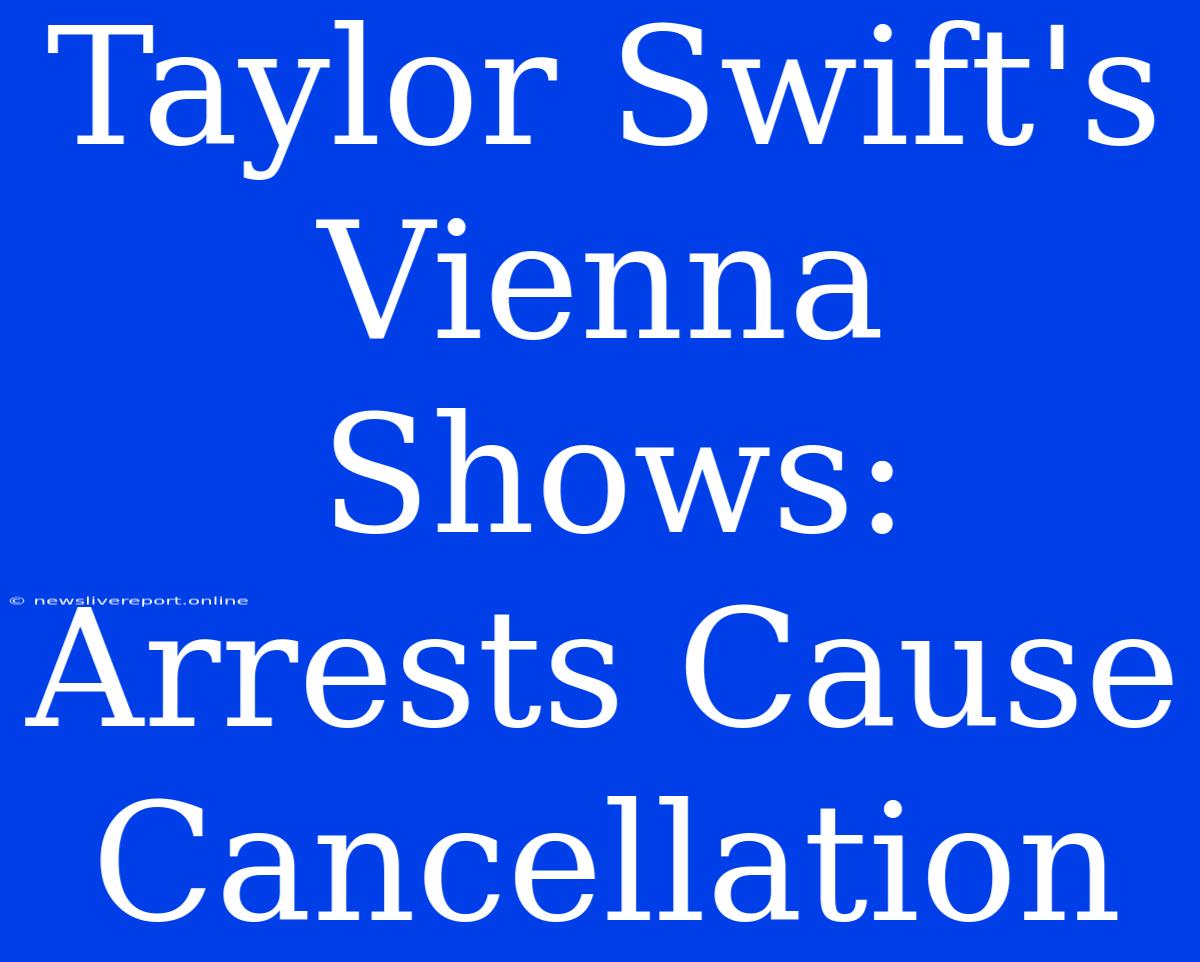Taylor Swift's Vienna Shows Cancelled Amidst Arrests: Fans Left Heartbroken and Confused
The highly anticipated Taylor Swift "Eras Tour" concert in Vienna, Austria was abruptly cancelled after a string of arrests and security concerns. This unexpected turn of events left thousands of fans devastated and yearning for answers.
What Happened?
The initial buzz around the Vienna shows, set for May 12 and 13, was undeniable. However, just a few days before the first performance, the Austrian police announced several arrests in connection with planned disruptions at the concert.
These arrests, reportedly related to suspected violence and property damage, prompted the promoters, Live Nation, to prioritize the safety of both fans and performers. Ultimately, the decision was made to cancel the shows, citing "unforeseen circumstances" and "security concerns."
Fans' Reactions: A Mix of Disappointment and Confusion
The cancellation came as a shock to many fans who had eagerly anticipated the event for months. Ticket holders expressed their deep disappointment and frustration on social media, sharing stories of missed travel arrangements, financial losses, and dashed dreams of seeing their idol live.
Many fans felt bewildered by the situation, questioning the severity of the threats and the lack of clarity around the exact reasons for cancellation.
The Importance of Safety: A Balancing Act?
While the decision to prioritize safety is understandable, many are left wondering if the organizers overreacted in canceling the entire event. Some fans argued that the arrests were not necessarily indicative of a widespread security threat, and that targeted security measures might have been a more appropriate response.
This incident raises crucial questions about the balance between fan enjoyment and safety, and how concert organizers should navigate potential disruptions while respecting the rights of attendees.
Moving Forward: Lessons Learned?
The Taylor Swift Vienna cancellations serve as a stark reminder of the complex challenges concert organizers face in today's world. The incident highlights the need for open communication with fans, transparent decision-making, and robust security protocols that can adapt to evolving threats.
It remains to be seen whether this experience will lead to changes in how future concerts are planned and managed. However, the widespread disappointment and confusion it has caused emphasizes the importance of finding a way to prioritize both safety and fan satisfaction.
In the aftermath of this unprecedented event, the future of the "Eras Tour" in Vienna remains uncertain. While fans eagerly await updates and potential reschedulings, the incident serves as a poignant reminder of the unpredictable nature of live events and the importance of prioritizing safety in the face of adversity.

